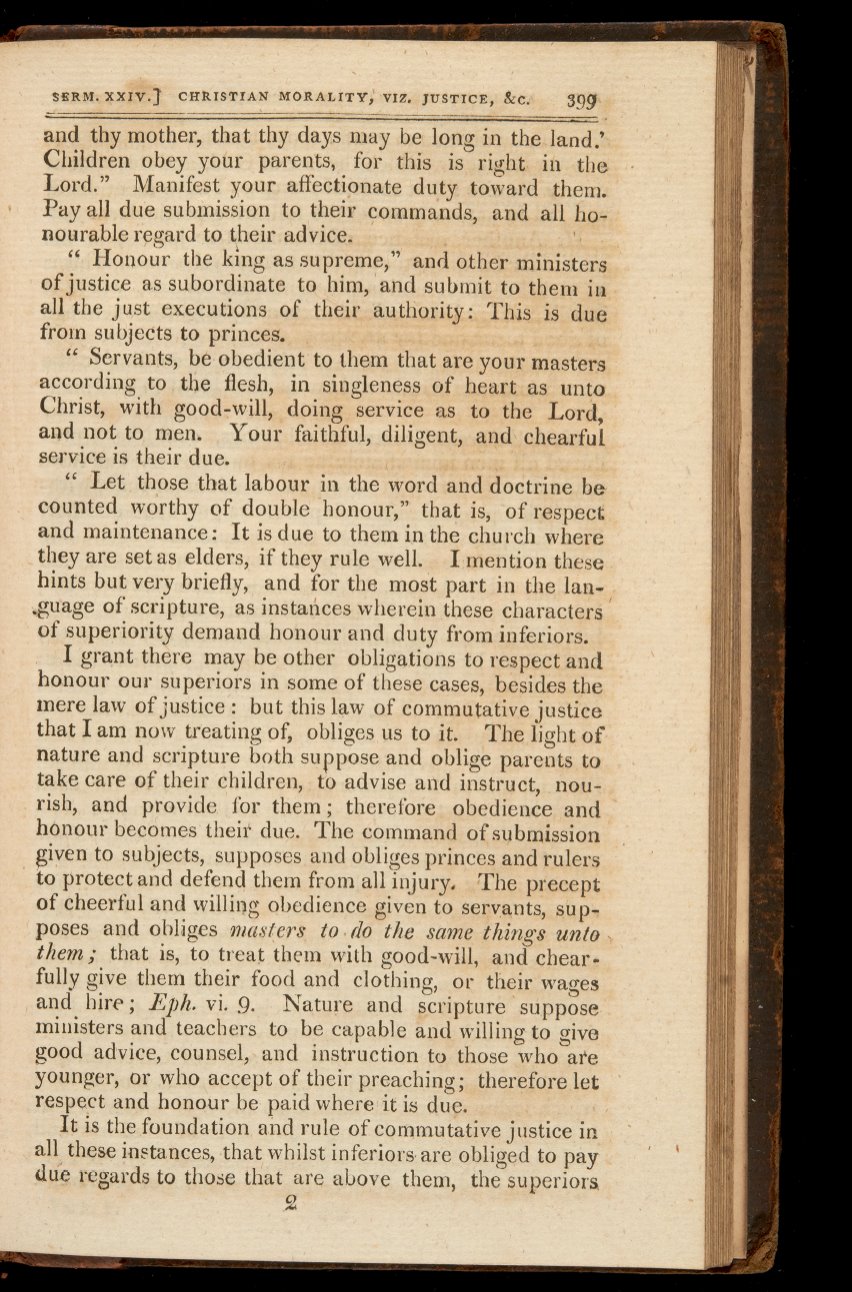

SERM.
XXIV./
CHRISTIAN MORALITY,
VIZ.
JUSTICE,
&C.
399
and thy mother,
that
thy
days may
be
long
in the
land:
Children
obey
your parents,
for this
is
right
in
the
Lord."
Manifest your affectionate duty toward
them.
Pay
all
due submission to
their
commands,
and
all ho-
nourable regard to their
advice.
Honour
the king
as
supreme," and
other
ministers
of
justice
as
subordinate
to
him,
and submit
to
them
in
all the
just
executions
of
their
authority:
This
is
due
from subjects to
princes.
"
Servants, be
obedient
to
them
that
are
your
masters
according to the
flesh,
in singleness
of heart
as
unto
Christ, with good
-will,
doing service
as to
the
Lord,
and
not
to men.
Your
faithful,
diligent,
and chearfut
service
is
their
due.
"
Let
those
that
labour
in the word and
doctrine
be
counted
worthy
of
double honour,"
that
is,
of
respect
and maintenance:
It
is
due
to them
in the church where
they are set
as
elders,
if
they
rule
well.
I
mention these
hints
but
very
briefly,
and for the most
part
in
the
lan-
,guage
of
scripture,
as
instances wherein
these
characters
of
superiority demand
honour
and duty
from
inferiors.
I
grant
there
may
be
other
obligations to
respect
and
honour our
superiors
in some
of
these
cases,
besides the
mere
law
of
justice:
but
this law
of
commutative
justice
that
I
am now
treating
of,
obliges us to
it.
The
light
of
nature
and scripture both suppose and
oblige
parents
to
take
care
of
their
children,
to advise
and instruct, nou-
rish,
and
provide,
for them
;
therefore obedience and
honour
becomes
their
due.
The
command
of
submission
given
to subjects, supposes and
obliges
princes and
rulers
to
protect
and defend them from
all
injury..
The precept
of
cheerful and
willing
obedience
given
to servants,
sup-
poses
and
obliges
masters
to
do
the
same
things
unto
them; that
is,
to
treat
them with
good
-will,
and
chear-
fully give
them
their
food
and
clothing,
or
their
wages
and hire
;
Eph.
vi.
9.
Nature
and
scripture
,
suppose
ministers and teachers
to be
capable
and
willing to
give
good advice, counsel,
and instruction
to those who
are
younger,
or
who
accept
of
their preaching; therefore
let
respect
and
honour
be
paid where
it
is
due.
It
is
the
foundation and rule
of
commutative
justice
in
all these instances,
that
whilst
inferiors are obliged to
pay
due regards to those
that
are above them, the
superiors
2

















